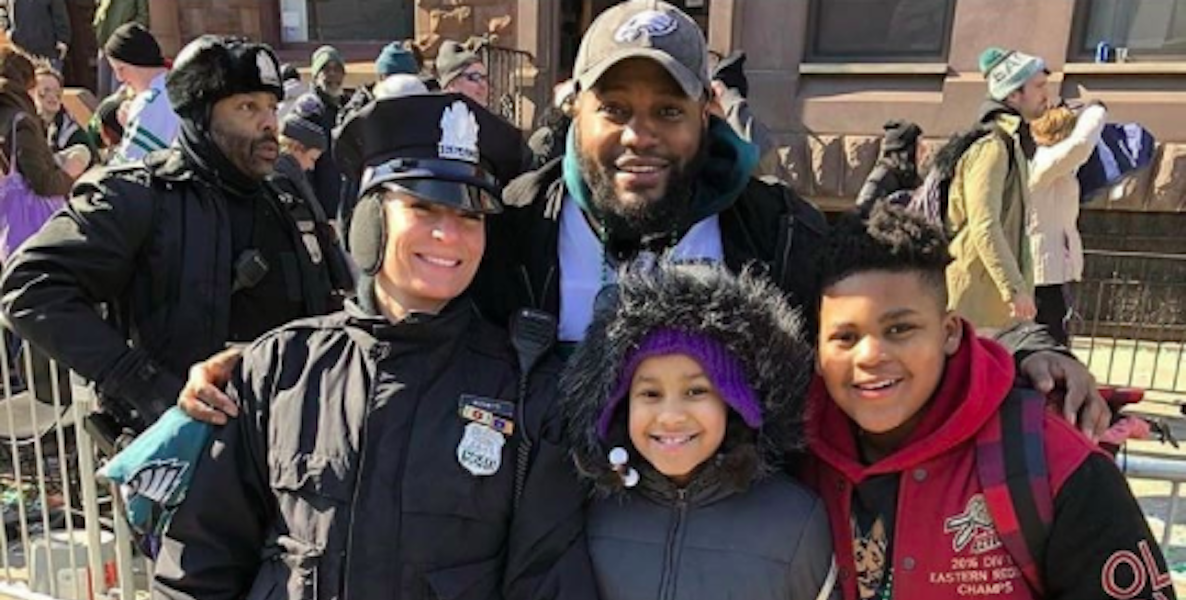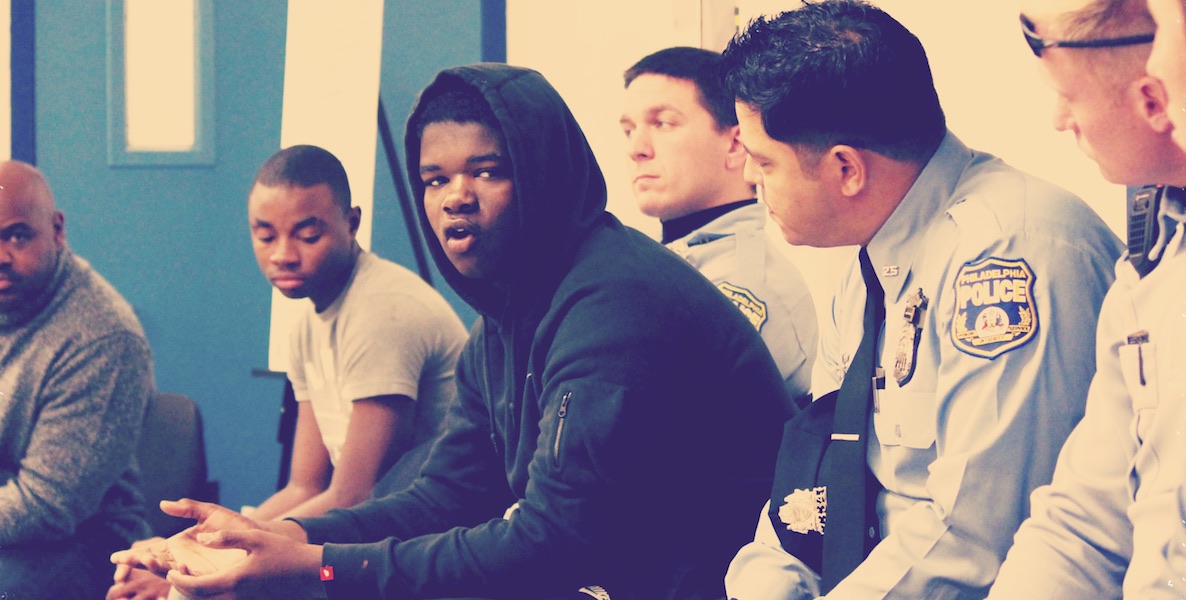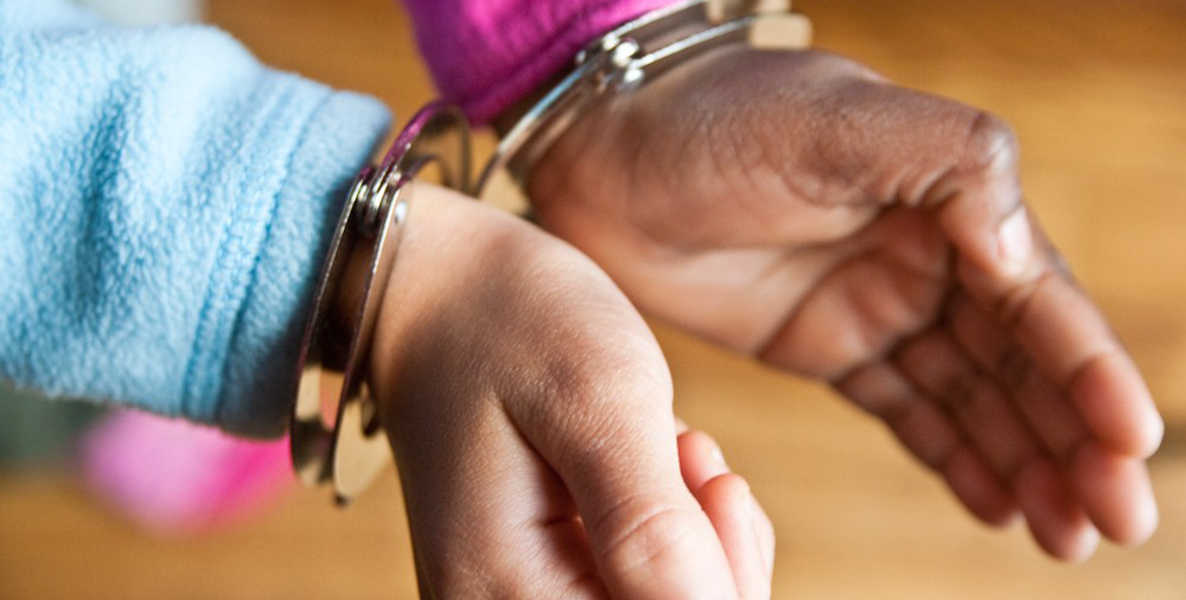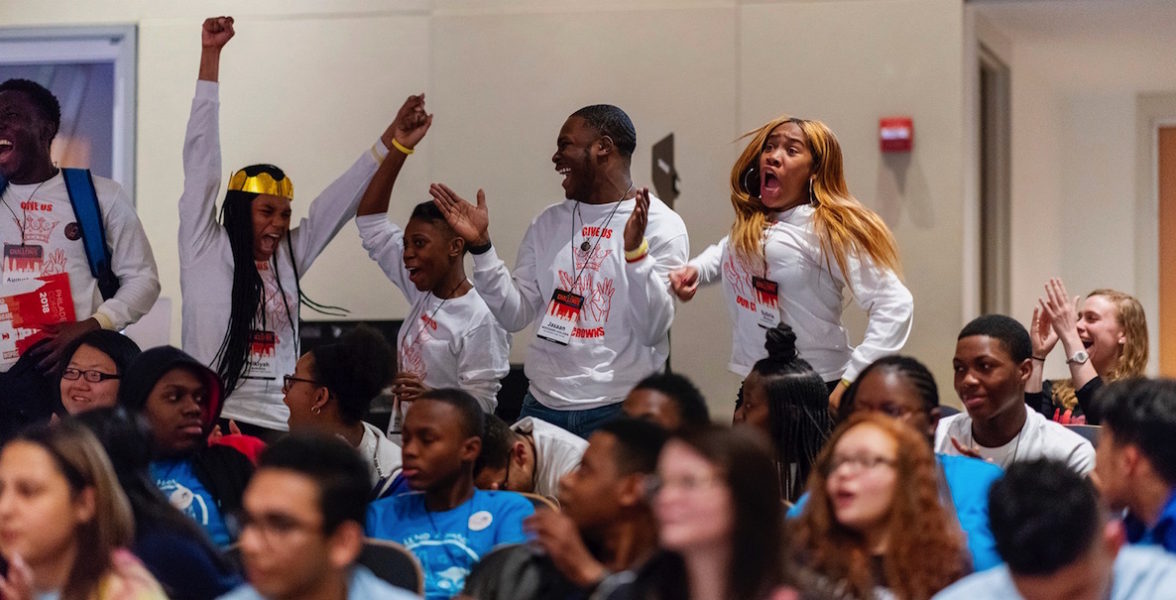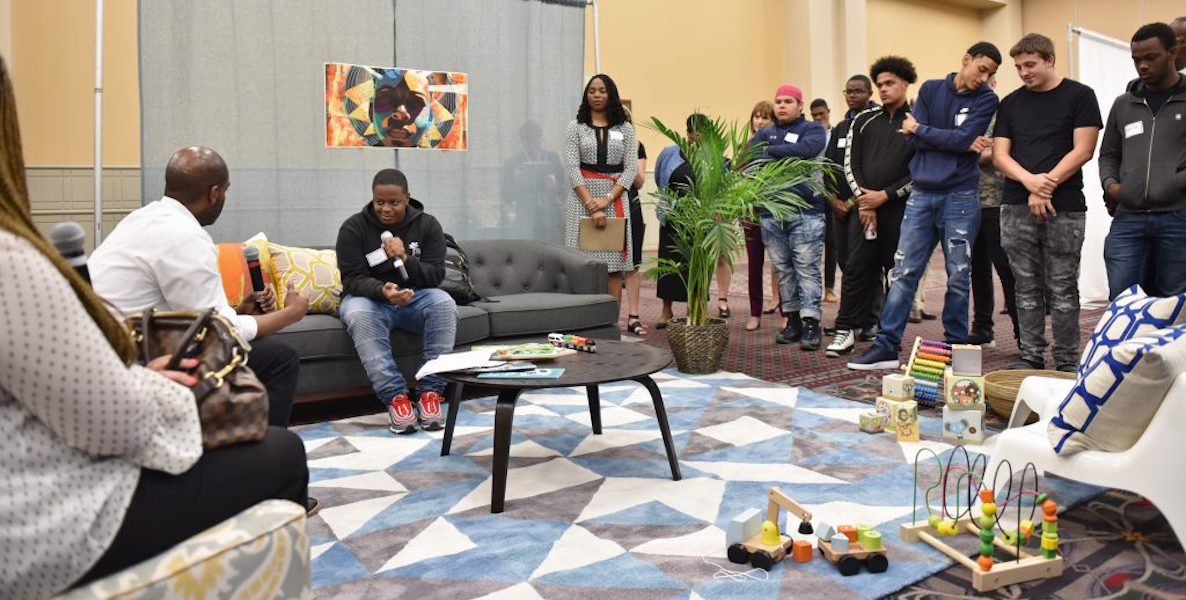For any of the 4,000 young people arrested in Philadelphia last year, the scenario went something like this: They were taken to the local police precinct, fingerprinted, put into a holding cell with other juveniles or sometimes adults, and made to wait with little communication—sometimes hours, while the police checked for outstanding warrants, contacted guardians and made decisions about whether to press charges.
Half the time, the youth were released with no charges and no record—but also no follow up, and no intervention to ensure they didn’t just end up back in police custody again. Instead, they could add the trauma of their arrest, and their encounter with the cops, to the list of issues that may be already plaguing them: Poverty, violence in their neighborhoods—and the fear that goes along with it—parents who work long hours, rec centers that have short ones, and a path that seems to lead inexorably into the criminal justice system.
“It’s great to break down silos where you can,” Smoot says. “Young people often have education needs, housing needs, other issues that are affecting their behavior. The more you can find one place that you can holistically solve those, is great.”
It doesn’t have to be that way, though. And thanks to the brainstorm of a couple Philly cops and a $1 million Bloomberg Philanthropies grant, it may not be for much longer. Over the last year, the City—after receiving an initial $100,000 grant from Bloomberg—has been testing the idea of a Juvenile Justice Hub that would radically change the experience of young people picked up by the police. In addition to being designed with kids in mind, and staffed by officers trained in trauma and youth, the hub would also offer social service evaluations and send kids home with referrals. That could mean mental health help, after school programs, drug rehab or any of an assortment of services with one main goal: Getting kids the help they need before they become a more serious offender.
![]()
“The idea is a sea change in the way juvenile arrests are handled,” says Rhonda McKitten, a Stoneleigh Fellow working with the City and police department on planning the hub. “This started as a conversation about how can we reduce the time that young people are spending in custody, and the trauma that brings. Now, the partners—the Police Department, D.A., probation, social service organizations—are talking about how to not just make the arrest process better, but actually make it so that they don’t get arrest records at all.”
As The Citizen first wrote last year, the idea for the Juvenile Justice Hub started with two Philly police officers, Sgt. John Ross and Lt. Steve Clark of the department’s strategic planning division. The officers have been involved in efforts to train department staff in how to better engage the people they are there to serve, something that is clearly needed. And they came to recognize that the trauma experienced by children in Philadelphia—many of whom witness violence and deep poverty in their neighborhoods—is a factor in their behavior, something often in need of treatment not adjudication. They started talking with McKitten about a way to put social services for juveniles in the same location as police, and found that their idea fit with the City’s criminal justice reform work. “The goal,” Lt. Clark said at the time, “is fewer kids becoming victims of crime, and fewer kids becoming offenders.”
In the first phase of the competition, Philly was one of 35 Champion Cities—out of 324 that applied—to receive the $100,000 and help of a Bloomberg coach to test out their idea. That culminated with the construction of a mock assessment center at the Philadelphia Convention Center, with colorful walls, comfortable sofas, paintings and plants. There—before Bloomberg Challenge selection committee co-chair Caroline Kennedy—the team brought in young people, officers, social workers and parents to role-play and to judge different scenarios children might face when they are arrested.
![]()
In one scenario, an officer trained in trauma and in working with youth, acted as the front desk officer. She greeted the “suspects” warmly, offered them a seat on a sofa and then started asking them questions—while standing above them, her firearm likely at eye level. “The youth pointed out that having an officer standing over you can be intimidating,” says McKitten. “We talked about how that initial contact can be made more comfortable, while still keeping everyone safe.”
Other scenarios included interactions between caseworkers and children, calls to and from parents, and the final piece—connecting children with social services before dismissing them. All along, they revised their design according to real time feedback from participants—including the youth, causing one of them to say, as Bloomberg Philanthropies CEO Patricia Harris noted later, “You’re treating us like people.” Which, after all, is partly the point.
“This started as a conversation about how can we reduce the time that young people are spending in custody, and the trauma that brings,” Rhonda McKitten says. “Now we are talking about how to not just make the arrest process better, but actually make it so that they don’t get arrest records at all.”
Bloomberg’s Katy Duda, who co-leads the government innovation programs, says the committee judged the 35 Champion Cities on four criteria: vision, potential impact, ability to implement, and transferability to other cities. Philly made it to the next round because the Juvenile Justice Hub—which would be the first of its kind in the country—scored high on all counts. “The proposal resonated in a really strong way,” Duda says. “It’s top of mind for so many cities, and one in which there is real potential for disruption and change for families, juveniles and the city.”
![]()
Naomi Smoot, Executive Director of the national Coalition for Juvenile Justice, says this sort of reform has become increasingly common for children in the child welfare system, but not—so far—in the criminal system. And she is especially gratified that the idea came from law enforcement officials themselves—the group on the front line of determining outcomes. “It’s great to break down silos where you can,” Smoot says. “Young people often have education needs, housing needs, other issues that are affecting their behavior. The more you can find one place that you can holistically solve those, is great.”
Smoot says, however, that the idea may actually not go quite far enough: The National League of Cities, for example, suggests an alternative where officers don’t take juveniles to a police station at all for minor infractions like being out after curfew, but takes them directly to a social services center to sort through their issues, like homelessness. That way, there is no record of their being involved with the police at all. “There’s a growing understanding that connecting them to services is going to have a better outcome than adjudicating them,” Smoot says. Still, she notes, “this is a step in the right direction.”
“We want take these juveniles out of our control and minimize the time that they are in police custody,” says Sgt. Ross. “The fact that it’s gone this far and is getting such a great response from the community makes me very happy.”
Among the other finalists—with ideas Philly might also take note of—are Los Angeles, investigating a plan to make it easier for residents to build an extra housing unit on their property if they allow homeless people to live there for some period of time; and Huntington, West Virginia, the center of the opioid crisis, which is doing research around solutions to compassion fatigue for first responders.
With all the talk locally and nationally about criminal justice reform—one of the rare issues with bipartisan support—there has been a lot of focus on lowering the country’s incarceration rate by creating a more equitable and accessible system. The aim of the Juvenile Justice Hub takes that one step further: It makes the case that the best way to reform people’s experiences in the criminal justice system is by keeping them out of it altogether. And the earlier the intervention the better. Most of the youth arrested by police in the course of a year are not violent criminals; many are first-time offenders caught committing small infractions. This posits that with the right help, that first offense could be the last.
It’s not without precedent. The hub would be a broader and deeper take on Philly’s school diversion program launched in 2014 by former Deputy Commissioner Kevin Bethel, which upended the way students are treated for committing nonviolent infractions in school. Now students who are first or sometimes second offenders, instead of being charged, are sent to a pre-arrest diversion program that keeps them in school, evaluates the cause of their disruptive behavior and sets them up with social services. In its first year alone, police cut in half the number of kids arrested in school, and that number has grown since. Bethel has since left the department to help jurisdictions around the state and country launch similar initiatives, and to work with advocates, including the Coalition for Juvenile Justice.
Julie Wertheimer, senior director of criminal justice in the Mayor’s managing director’s office, said the feedback so far has been of two types: Enthusiasm for the idea of connecting juvenile offenders with social services; and concern about a centralized hub being too far from where they actually live. “We’re aware of the fact that we are geographically a large city, with lots of traffic, and we want to be conscious of that for officers doing transport, and for families,” she says. “But that’s the crux of the whole point: One central hub tailored to youth.” Wertheimer points out, too, that Miami-Dade County—the only other city with a central juvenile processing center—is much larger than Philly.
For the last several months, Wertheimer, McKitten and the rest of the team have been meeting every two weeks with service providers and community members to work through the exact details of what the hub would include, and how it would work, along with a coach from Bloomberg. It’s a deliberately slow process, different from the way city government usually operates—launching a pilot, then getting feedback over the course of six months to a year, then tweaking as things come up. (See, for example, the City’s recent street sweeping pilot, launched with $2.7 million in trucks that are too wide for many Philly streets.) As such, Wertheimer says an operational pilot will likely open sometime in 2020.
And, it will take more than Bloomberg’s $1 million to do so—though how much money is needed is not yet clear. Duda says part of the Bloomberg’s work with the City is to help think through funding possibilities; Wertheimer says they are exploring other philanthropic support or possibly reallocating other City funds.
As for the cops who started all this? Ross didn’t quite know what to expect when this whole thing started, or how deep it would go. He says the department is already starting to train officers in de-escalation and trauma among juveniles, and that he’s brought the hub idea to captains all over the city—with gratifying results.
“In thinking about this, we discovered, honestly, that we can’t do this alone as a Police Department, we need other partners and stakeholders to do this,” Ross says. “We want to take these juveniles out of our control and minimize the time that they are in police custody. The fact that it’s gone this far and is getting such a great response from the community makes me very happy.”
Correction: An earlier version of this story misstated Julie Wertheimer’s title. She is Mayor Kenney’s senior director of criminal justice.
Photo/caption via Bloomberg Cities; Teenagers, police officers, and social workers role-played interactions that would take place at Philadelphia’s Juvenile Justice Hub. The proposed facility is intended to provide a less traumatic experience for the 4,000 youths arrested in the city each year, who currently encounter a similar system as adults.


